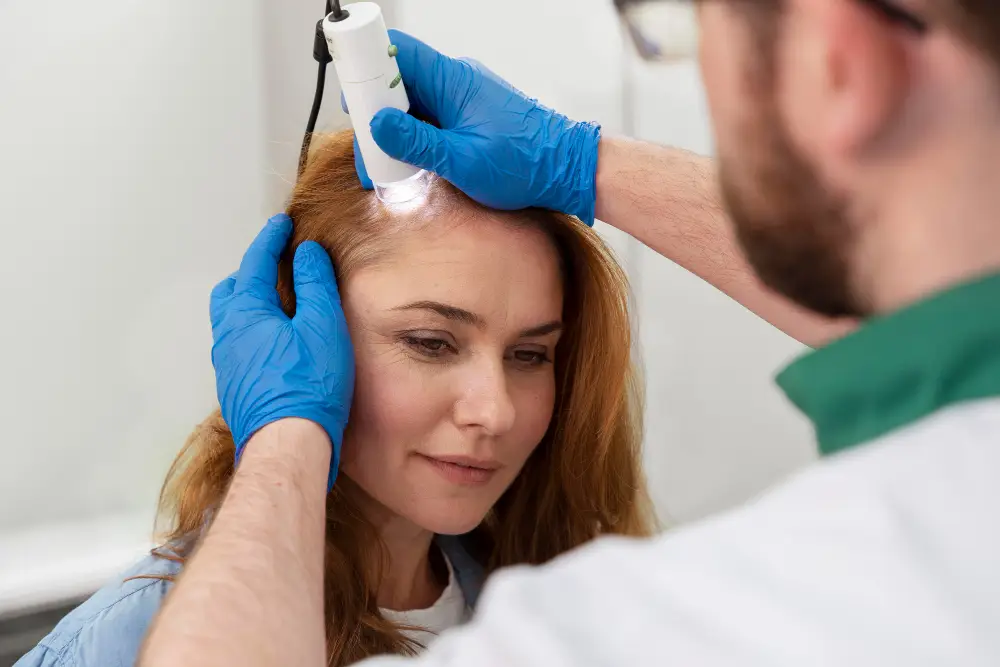
Key Takeaways
- Multiple Sclerosis (MS) is a complex autoimmune disease affecting the central nervous system.
- Stem cell treatments for MS are an evolving area of research, primarily focusing on immunomodulation, neuroprotection, and potential remyelination.
- While not a “cure,” these approaches aim to mitigate disease progression and manage symptoms, with efficacy and safety still under rigorous investigation.
- Choosing an ethical and transparent provider is paramount, requiring careful review of scientific evidence and regulatory compliance.
- Pereira, Colombia, offers a supportive environment for patients considering advanced therapies, with established medical infrastructure and patient-centric services.
Stem Cell Treatments for Multiple Sclerosis: Navigating Your Options
Table of Contents
- Introduction: Understanding MS and the Hope for Advanced Therapies
- The Stakes & Critical Implications of Multiple Sclerosis
- The Conventional Approach to MS Management
- The Pereira, Colombia Advantage: A Focus on Patient-Centric Care
- The Clarity Compass for MS Treatment: Your Practical Resource
- Our Regenerative Philosophy & Approach: An Educational Overview
- Overcoming Common Hesitations: Why Seeking Clarity is a Strategic Advantage
- Glossary of Key Terms
- Frequently Asked Questions (FAQ)
- Take the Next Step: Contact Us for a Confidential Case Review
Introduction: Understanding MS and the Hope for Advanced Therapies
Multiple Sclerosis (MS) is a challenging autoimmune condition that affects millions globally, disrupting the central nervous system. For many, the journey with MS is marked by uncertainty, progressive symptoms, and the constant search for therapies that can slow or halt its advance. In this landscape, the conversation around stem cell treatments for multiple sclerosis has grown significantly, offering a beacon of hope for managing this complex disease.
Our goal at Regencord, located in the vibrant city of Pereira, Colombia, is to provide clarity and comprehensive education for individuals exploring advanced care options. We understand the unique emotional state of patients: hopeful yet cautious, often overwhelmed by information, and concerned about the trajectory of their health. This guide is designed to empower you with verifiable facts, contextual insights, and a clear understanding of the evolving landscape of stem cell applications for MS, all while strictly adhering to ethical and transparent communication principles.
We aim to be your definitive resource, translating complex medical concepts into accessible information, and introducing you to a potential pathway for care without making unverified claims or guaranteeing outcomes. We believe in empowering you to make informed decisions for your health journey.
The Stakes & Critical Implications of Multiple Sclerosis

Multiple Sclerosis manifests differently in each individual, but its impact on quality of life is profound. It’s characterized by the immune system mistakenly attacking the protective sheath (myelin) that covers nerve fibers, leading to communication problems between the brain and the rest of the body. Over time, the disease can cause permanent damage or deterioration of the nerves.
According to the World Health Organization (WHO), MS is a leading cause of non-traumatic disability in younger adults. Symptoms can range widely, from numbness and tingling to severe muscle weakness, vision loss, cognitive impairment, and debilitating fatigue. The unpredictable nature of relapses and the potential for progressive disability highlight the critical need for effective management strategies.
Traditional treatments focus on managing symptoms and slowing disease progression, but they do not reverse existing damage. This limitation drives many patients to seek out advanced therapies, including those involving stem cells, which are being researched for their potential to address underlying disease mechanisms like immunomodulation and neuroprotection.
Understanding the full implications of MS—from its neurological impact to its emotional and logistical challenges—is the first step toward exploring all available and emerging options thoughtfully and responsibly. The scientific community, as evidenced by numerous PubMed-indexed peer-reviewed journals, continues to investigate various therapeutic avenues to improve patient outcomes and quality of life.
The Conventional Approach to MS Management

In many healthcare systems, including those in countries like Colombia and others globally, the conventional management of Multiple Sclerosis primarily revolves around disease-modifying therapies (DMTs) and symptomatic treatments. The objective of DMTs, as outlined by bodies like the U.S. National Institutes of Health (NIH), is to reduce the frequency and severity of relapses, slow disease progression, and minimize new lesion formation in the brain and spinal cord.
- Disease-Modifying Therapies (DMTs): These medications, available in oral, injectable, and infusion forms, work by modulating the immune system to reduce its attack on myelin. While effective for many in managing relapsing-remitting MS, their effectiveness can vary, and they may not fully halt progression, especially in progressive forms of the disease.
- Symptomatic Treatments: These therapies address specific symptoms such as fatigue, spasticity, pain, bladder dysfunction, and cognitive issues. They are crucial for improving daily functioning and quality of life but do not impact the underlying disease pathology.
- Rehabilitation: Physical therapy, occupational therapy, and speech therapy play a vital role in helping patients maintain function, manage symptoms, and adapt to changing abilities.
While these conventional approaches provide significant benefits, many patients experience ongoing progression or find their symptoms insufficiently managed. This often leads to a search for complementary or advanced therapies that might offer additional avenues for disease management. The Colombian Ministry of Health and Social Protection oversees the regulatory framework for medical treatments within the country, ensuring standards are met for patient care and the approval of therapeutic agents.
The Pereira, Colombia Advantage: A Focus on Patient-Centric Care

When considering advanced therapies for conditions like Multiple Sclerosis, the choice of location for care extends beyond just the treatment itself. Pereira, Colombia, emerges as a compelling destination, offering a unique blend of high-quality medical infrastructure, a patient-first approach, and a restorative environment. Our synthesized contextual insight reveals that patients often face ‘decision fatigue’ and logistical anxieties when exploring complex treatments internationally. Pereira addresses these concerns directly.
Robust Medical Infrastructure and Standards
Colombia has significantly invested in its healthcare sector, leading to modern medical facilities and a highly trained medical workforce. Hospitals in cities like Pereira are equipped with advanced diagnostic and treatment technologies, adhering to international standards. The country’s regulatory body, INVIMA (Instituto Nacional de Vigilancia de Medicamentos y Alimentos), ensures that medical practices and products meet rigorous safety and efficacy requirements, similar to the FDA in the United States or EMA in Europe. This provides a foundational layer of trust and legitimacy for patients considering care in the region.
A Supportive and Holistic Environment
Beyond the clinical setting, Pereira offers a naturally beautiful and tranquil environment. The region’s focus on holistic well-being complements medical treatment, contributing to a more comprehensive healing experience. The cultural warmth and hospitality often experienced in Colombia, combined with a climate that can be conducive to recovery, create a supportive atmosphere for patients and their families. Our experience shows that this supportive cultural environment, coupled with medical advancements, contributes significantly to the overall patient journey.
Streamlined Patient Journey and Accessible Value
For international patients, navigating a new healthcare system can be daunting. In Pereira, the process is designed to be as seamless as possible. From initial confidential case review to coordinating travel, accommodation, and appointments, dedicated patient advocacy teams work to transform perceived complexity into a manageable, supported pathway. This focus on clear, step-by-step navigation significantly reduces anxiety. Furthermore, compared to many developed nations, the cost structure for high-quality medical care in Colombia often provides a more accessible value proposition, allowing patients to pursue advanced treatments without the overwhelming financial burden frequently encountered elsewhere.
The Regencord team in Pereira, Colombia, is committed to embodying this advantage. We focus on transparent communication, ethical care coordination, and ensuring that every patient’s journey is guided by clarity and comprehensive support. This approach allows patients to focus on their health, secure in the knowledge that they are in a well-regulated and deeply supportive environment.
The Clarity Compass for MS Treatment: Your Practical Resource

Navigating the options for Multiple Sclerosis treatment, especially when considering advanced therapies like stem cell applications, can feel like traversing unfamiliar terrain. To guide you through this journey with confidence, we’ve developed “The Clarity Compass for MS Treatment” – a practical, branded patient resource tool designed to help you organize your thoughts, questions, and priorities.
This checklist is not a substitute for medical advice, but a structured framework to empower you during your research and consultation process. It helps ensure you cover all critical considerations, moving from uncertainty to decisive, informed action.
How to Use The Clarity Compass:
- Self-Assessment & Current State:
- What is your specific MS diagnosis and current stage? (e.g., Relapsing-Remitting, Secondary Progressive, Primary Progressive)
- What are your primary symptoms and how do they impact your daily life?
- What conventional treatments have you tried, and what were the outcomes?
- What are your main goals for seeking advanced treatment? (e.g., slowing progression, symptom management, improving quality of life)
- Information Gathering & Research:
- Have you reviewed information from authoritative sources like the NIH, WHO, or PubMed-indexed journals regarding stem cell treatments for MS?
- Do you understand the difference between various types of stem cells discussed (e.g., mesenchymal stem cells, hematopoietic stem cell transplantation (HSCT)) and their current research status for MS?
- What are the known potential benefits (e.g., immunomodulation, neuroprotection, remyelination) and risks associated with these treatments based on scientific evidence?
- Provider & Program Evaluation:
- Does the provider offer a transparent overview of their treatment protocols and the scientific basis for their approach?
- Are their facilities accredited and regulated by local health authorities (e.g., INVIMA in Colombia)?
- What is the team’s experience with international patients, including language support and logistical assistance?
- Is a thorough, individualized case review part of their process to determine your suitability?
- Logistical & Financial Planning:
- What are the estimated overall costs, including treatment, travel, accommodation, and post-treatment follow-up?
- What support is available for travel arrangements, local transportation, and accommodation in Pereira, Colombia?
- How will follow-up care and communication with your local healthcare providers be managed post-treatment?
- Expectation Management:
- Are the potential outcomes and limitations of the treatment clearly communicated, without making guarantees?
- Do you have a realistic understanding of what the treatment aims to achieve for your condition?
Using The Clarity Compass helps transform overwhelming information into actionable steps, allowing you to engage in more productive conversations and make confident decisions about your path forward. Contact us for a confidential case review to further discuss your unique situation and how this compass can guide you.
Our Regenerative Philosophy & Approach: An Educational Overview

At Regencord in Pereira, Colombia, our approach to advanced therapies, including those involving stem cells for conditions like Multiple Sclerosis, is rooted in a regenerative philosophy. This philosophy is centered on supporting the body’s intrinsic capabilities for repair and regulation, rather than simply suppressing symptoms. We aim to provide pathways that align with the evolving understanding of complex diseases like MS, informed by ongoing research and ethical considerations.
The interest in stem cells for MS stems from their unique biological properties, which include:
- Immunomodulation: Stem cells, particularly mesenchymal stem cells (MSCs), have demonstrated the ability to modulate the immune system. In autoimmune diseases like MS, this means they could potentially help to regulate the aberrant immune response that attacks myelin, thereby reducing inflammation and protecting nerve cells. Research highlighted by the NIH consistently explores this capacity, seeking to understand how to harness it effectively.
- Neuroprotection: Beyond immune regulation, some stem cells can release trophic factors that support the survival and health of existing neurons. This neuroprotective effect is crucial in MS, where nerve damage is a key contributor to disability. By creating a more favorable microenvironment, stem cells may help to slow the degeneration of nerve fibers.
- Remyelination: One of the most promising, albeit still deeply researched, areas is the potential for stem cells to promote remyelination – the repair of the damaged myelin sheath. While direct myelin regeneration is a complex biological process, certain stem cell types are being investigated for their capacity to differentiate into myelin-producing cells or to stimulate existing progenitor cells to do so. This area of research is frequently published in PubMed-indexed peer-reviewed journals, indicating its scientific significance.
Our educational approach focuses on transparency regarding what current science suggests and what remains under investigation. We emphasize that stem cell treatments for MS are not presented as a “cure” but as a potential pathway to influence disease activity, manage symptoms, and improve quality of life through mechanisms like immunomodulation and neuroprotection. This responsible perspective is critical to setting realistic expectations.
We are committed to ethical practices, ensuring that any advanced therapy offered aligns with the regulatory guidelines of the Colombian Ministry of Health and INVIMA. Our team prioritizes comprehensive patient assessment, ensuring that any proposed therapeutic pathway is carefully considered for the individual’s specific condition and circumstances. This diligent process helps us to responsibly introduce the potential advantages of these evolving therapies.
Overcoming Common Hesitations: Why Seeking Clarity is a Strategic Advantage
Exploring advanced treatment options, particularly in an international setting, naturally brings forth a range of hesitations and questions. At Regencord, we recognize these concerns as valid and integral to your decision-making process. Addressing them directly and transparently is part of our commitment to ethical patient empowerment. Our synthesized patient avatar reveals concerns about safety, complexity, and realistic outcomes, all of which we aim to clarify.
“Is receiving medical care in Colombia safe or legitimate for MS?”
This is a fundamental and entirely reasonable question. Colombia has a well-established and continuously developing healthcare infrastructure. The nation’s medical education system is robust, producing highly skilled professionals. For example, INVIMA, Colombia’s National Food and Drug Surveillance Institute, functions as the primary regulatory body, ensuring that medical facilities, treatments, and practices adhere to stringent national and international standards. Many facilities in cities like Pereira are modern, equipped with advanced technology, and designed to cater to international patients. The legitimacy of care is founded on these verifiable facts: a regulated system, accredited facilities, and highly trained personnel. This shifts the focus from fear of the unknown to an understanding of a well-regulated system.
“This sounds too complicated and overwhelming. I wouldn’t know where to start.”
The thought of navigating medical travel and an unfamiliar healthcare system can indeed feel daunting. Our second synthetic contextual insight highlights that patients benefit immensely from a clear, step-by-step navigational framework. This is precisely why the team at Regencord in Pereira, Colombia, emphasizes a supported patient journey. From your initial confidential case review to visa assistance, travel logistics, local transportation, and accommodation, a dedicated patient advocacy team is there to streamline the entire process. This transforms the perception of a complex endeavor into a manageable, supported pathway, allowing you to focus on your health, not on the logistics.
“How do I determine if a particular stem cell treatment is appropriate for my specific condition, and what are the realistic expectations?”
It’s crucial to understand that advanced therapies are not a one-size-fits-all solution. Our persuasive lever addresses this by shifting focus from generic promises to personalized evaluation. Suitability for any advanced therapeutic pathway, including those involving stem cells for MS, is determined through a rigorous, individualized, confidential case review process. This involves a thorough assessment of your medical history, specific MS presentation (e.g., type, progression, previous treatments), and current health status. During this review, the scientific basis for potential benefits—such as immunomodulation or neuroprotection—and realistic expectations regarding outcomes are discussed transparently. We avoid any assertions of unverified clinical superiority or guarantees of outcomes, instead focusing on informed decision-making based on current scientific understanding and ethical practice.
“The cost of stem cell treatments, even abroad, must be prohibitive.”
Concerns about the financial aspect of advanced care are very common. While we cannot provide specific figures without a case review, we can assure you that our approach is rooted in transparency regarding the investment required. The value proposition of seeking care in Pereira, Colombia, often lies in a more accessible cost structure for high-quality, comprehensive care compared to options in many other developed nations, without compromising on standards. A confidential case review is the appropriate avenue to discuss the financial aspects, allowing you to understand the investment involved and make financially informed decisions that align with your health goals. Our aim is to provide clarity, not to make direct comparisons or “cheap” claims, but to highlight that quality care can be accessible.
By seeking clarity and engaging with a transparent, ethical provider, you transform these hesitations into opportunities for informed decision-making. Your autonomy and understanding are paramount, and our team is here to provide the information and support you need.
Glossary of Key Terms
- Autoimmune Disease
- A condition in which the body’s immune system mistakenly attacks its own healthy tissues.
- Central Nervous System (CNS)
- Comprising the brain and spinal cord, it controls most functions of the body and mind.
- Disease-Modifying Therapies (DMTs)
- Medications used to alter the course of Multiple Sclerosis by reducing the frequency and severity of relapses and slowing progression.
- Immunomodulation
- The process of adjusting or regulating the immune system’s response. In MS, this aims to temper the overactive immune reaction attacking myelin.
- INVIMA
- Colombia’s National Food and Drug Surveillance Institute, responsible for the regulation and oversight of medicines, medical devices, and health products.
- Mesenchymal Stem Cells (MSCs)
- A type of multipotent stromal cell that can differentiate into various cell types and has immunomodulatory and trophic properties, making them a subject of interest in regenerative medicine.
- Multiple Sclerosis (MS)
- A chronic, typically progressive disease involving damage to the sheaths of nerve cells in the brain and spinal cord, whose symptoms may include numbness, impairment of speech and of muscular coordination, blurred vision, and severe fatigue.
- Myelin
- A protective fatty sheath that insulates nerve fibers, allowing electrical impulses to transmit quickly and efficiently. Damage to myelin is a hallmark of MS.
- Neuroprotection
- Strategies or substances that protect nerve cells from damage, degeneration, or death, crucial in conditions like MS to preserve neurological function.
- Regenerative Medicine
- A field focused on developing therapies to repair, replace, or regenerate damaged or diseased cells, tissues, or organs, including approaches involving stem cells.
- Remyelination
- The process of repairing or regenerating the myelin sheath around nerve fibers. This is a key area of research in MS treatments to potentially reverse nerve damage.
- Stem Cells
- Undifferentiated biological cells that can differentiate into specialized cells and can divide to produce more stem cells. They are fundamental to regenerative medicine due to their unique properties.
Frequently Asked Questions (FAQ)
Q1: What are stem cell treatments for MS aiming to achieve?
Stem cell treatments for Multiple Sclerosis are currently being explored for their potential to modulate the immune system (immunomodulation), protect existing nerve cells (neuroprotection), and in some research, promote the repair of damaged myelin (remyelination). The goal is often to slow disease progression, reduce symptoms, and improve quality of life, rather than offering a complete “cure.”
Q2: Are stem cell treatments for MS universally approved and standardized?
No, stem cell treatments for MS are still largely considered investigational, with ongoing clinical trials worldwide (as found on ClinicalTrials.gov and highlighted by the NIH). While some specific types, like Hematopoietic Stem Cell Transplantation (HSCT), have a more established role in severe, highly active MS, other applications involving different stem cell types are under rigorous study. It’s crucial to understand the research stage and regulatory status of any specific treatment.
Q3: What kind of stem cells are used in treatments for MS?
Various types of stem cells are being investigated for MS. Mesenchymal Stem Cells (MSCs), often derived from bone marrow or adipose tissue, are frequently studied due to their immunomodulatory and trophic properties. Hematopoietic Stem Cells (HSCs) are used in HSCT, which involves ablating the immune system and then reconstituting it with the patient’s own stem cells to “reset” the immune response. The specific type of stem cell used depends on the treatment protocol and the scientific basis supporting its application.
Q4: How can I determine if I am a candidate for stem cell treatment for MS?
Determining suitability requires a comprehensive and confidential case review with a medical team. This typically involves evaluating your specific MS diagnosis, disease progression, medical history, previous treatments, and overall health. The team at Regencord in Pereira, Colombia, conducts such reviews to assess if any of the regenerative medicine pathways available align with your unique health profile and the current scientific understanding of their potential.
Q5: What are the potential risks associated with stem cell treatments for MS?
Like any medical procedure, stem cell treatments carry potential risks, which can vary significantly depending on the type of cells used, the method of administration, and the patient’s individual health status. General risks might include infection, immune reactions, or complications related to the procedure itself. Reputable providers will transparently discuss all known risks and benefits, drawing from established scientific literature from sources like PubMed and the NIH, and never make “risk-free” assertions.
Q6: Why consider seeking treatment in Pereira, Colombia?
Pereira, Colombia, offers several advantages for international patients considering advanced therapies. These include a modern medical infrastructure, highly trained medical professionals, a supportive environment conducive to recovery, and a patient advocacy system designed to streamline the international patient journey. The regulatory oversight by bodies like INVIMA ensures adherence to medical standards. Furthermore, the accessible cost structure for high-quality care can be a significant factor for many individuals seeking advanced options.
Take the Next Step: Discover Your Potential Pathway
Exploring advanced therapies for Multiple Sclerosis is a deeply personal journey. The team at Regencord in Pereira, Colombia, is here to provide the clarity and support you need.
Discover if you are a candidate for the regenerative medicine pathways available through the team at Regencord in Pereira, Colombia.



